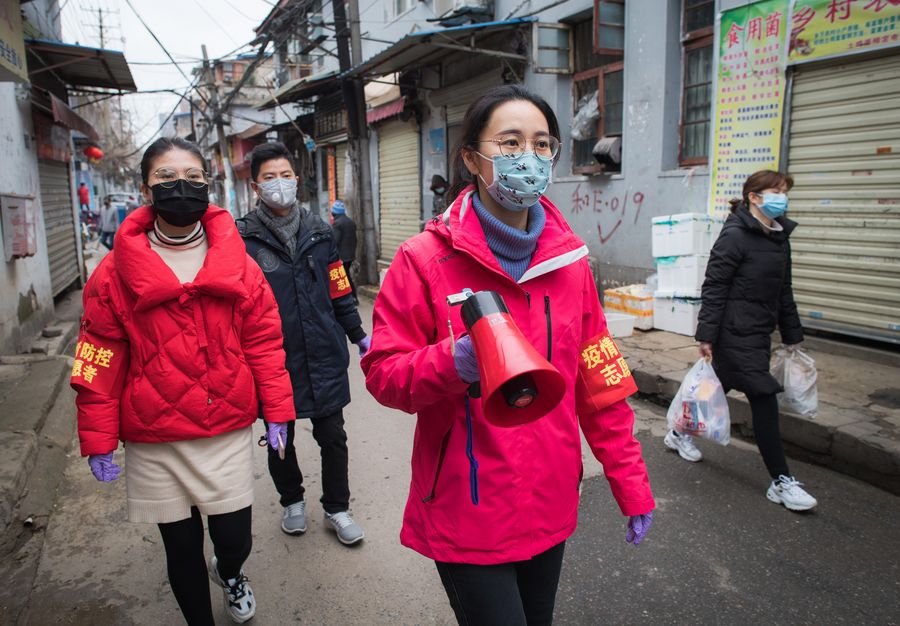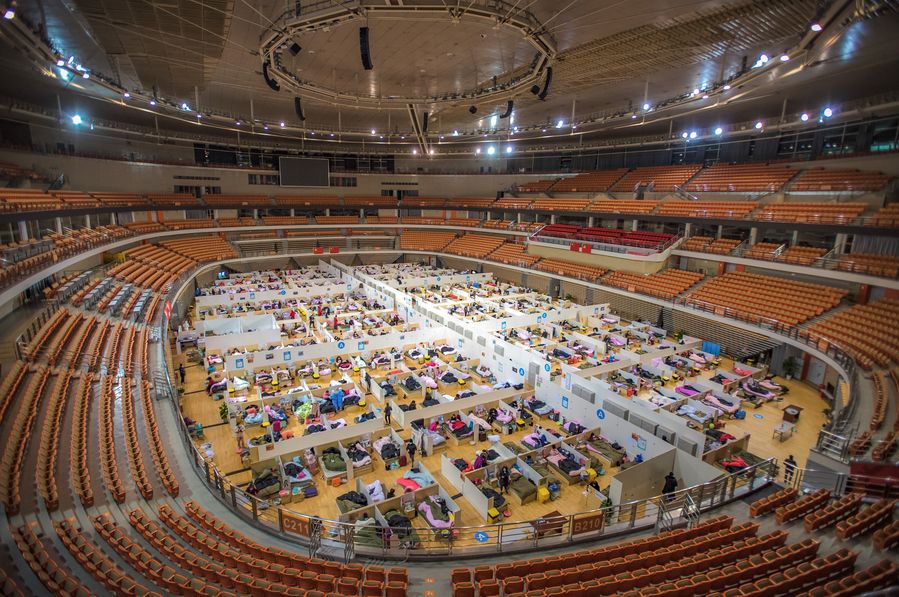
Medical staff members from Jiangsu Province work at an ICU ward of the Wuhan No. 1 Hospital in Wuhan, central China's Hubei Province, Feb. 22, 2020. (Xinhua/Xiao Yijiu)
"Its experience holds three important lessons -- to talk to the public, to slow the transmission of the disease and to prepare health systems for a spike in demand."
BEIJING, March 3 (Xinhua) -- China's effort to contain the COVID-19 epidemic has made a big difference, and provides three important lessons for the world, said The Economist magazine.
As the novel coronavirus disease is spreading into more countries, what it causes depends "greatly on what governments choose to do, as China shows," The Economist said in a leading article.
Before the virus spread much outside China's central Hubei Province, the epicenter of the outbreak, China imposed the largest quarantine in history, shutting factories, stopping public transport and instructing people to stay indoors, it noted.
"This raised awareness and changed behavior," it commented. "Without it, China would by now have registered many millions of cases and tens of thousands of deaths."
Even if many countries can not exactly copy China, "its experience holds three important lessons -- to talk to the public, to slow the transmission of the disease and to prepare health systems for a spike in demand," said the article.
"The best time to inform the people about the disease is before the epidemic," it said, adding that even well-meaning attempts to sugarcoat the truth are self-defeating, "because they spread mistrust, rumors and, ultimately, fear."
"Now is the moment to persuade the future 80 percent of mild cases to stay at home and not rush to a hospital," it suggested, noting that China's experience indicates that roughly 80 percent of detected cases will be mild.

Community staff Weng Wenjing (2nd R) and volunteers Liu Ying (1st L) and Zhang Qi (2nd L) prepare to introduce prevention and control knowledge of the novel coronavirus at Xichenghao Community in Wuhan, capital city of central China's Hubei Province, Feb. 7, 2020. (Xinhua/Xiao Yijiu)
"China's second lesson is that governments can slow the spread of the disease," the article pointed out. "Flattening the spike of the epidemic means that health systems are less overwhelmed, which saves lives."
"When countries have few cases, they can follow each one, tracing contacts and isolating them," the article noted.
But when the disease is spreading in the community, "governments need to prepare for the moment when they will switch to social distancing, which may include cancelling public events, closing schools, staggering work hours and so on," it suggested.

The interior view of the temporary hospital converted from Wuhan Sports Center in Wuhan, central China's Hubei Province, Feb. 17, 2020. (Xinhua/Xiao Yijiu)
"The third lesson is to prepare health systems for what is to come," said the article.
"Hospitals need supplies of gowns, masks, gloves, oxygen and drugs," it noted. "They need a scheme for how to set aside wards and floors for COVID-19 patients, for how to cope if staff fall ill, and for how to choose between patients if they are overwhelmed."
Noting that the virus will test both rich and developing countries, the article said that as China has bought governments time to prepare, "they should use it." ■



